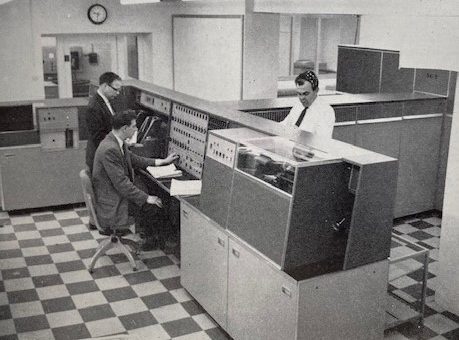They trained me as a work and methods study officer, sent me to Birmingham for a few weeks when I was nineteen, and I ended up in the works study office, on timing people for piece work schemes. But there were two separate work study departments: tannery work study and manufacturing work study and they all had about ten or twelve people in each office.
[Tim, Morlands]
They decided to bring in a computer system to make it more organised, more efficient. I just remember I was in the same room as the computer and I was the statistical assistant, so my job was to produce reports on how many coats we’d sold.
[Shirley, Baily’s]
And we used to have ledgers in big iron cabinets. You put your hand in a little gap and you pulled them out and they’d drop down and they were like a drawer. And you lifted them out – mind these were made of iron so they were really heavy – and put them on a stand. And in this particular office, these drawers were all the different account cards for all the different customers you had.
[Julia, Morlands]

Photo: Morlands Magazine, Spring, 1964
There was a man who dealt with complaints, I can remember sitting here and he was behind me and his standard answer to people when they were complaining about delays in delivery was “I’m sorry but its still on Salisbury Plain – your orders still on Salisbury Plain.” In other words, your order is still in sheep form! That was his standard reply for late deliveries.
[Jackie, Morlands and Baily’s]

Photo: Morlands archive
If Baily bought say 10,000 pairs of boots or slippers one year and it turned out to be a warm winter, it was down to a thousand the next. It really was seesaw.
[John, Morlands and Baily’s]
I had to write a report for each lot of skins I sorted, didn’t matter if they were all pretty similar.
[Gerald, Morlands]

